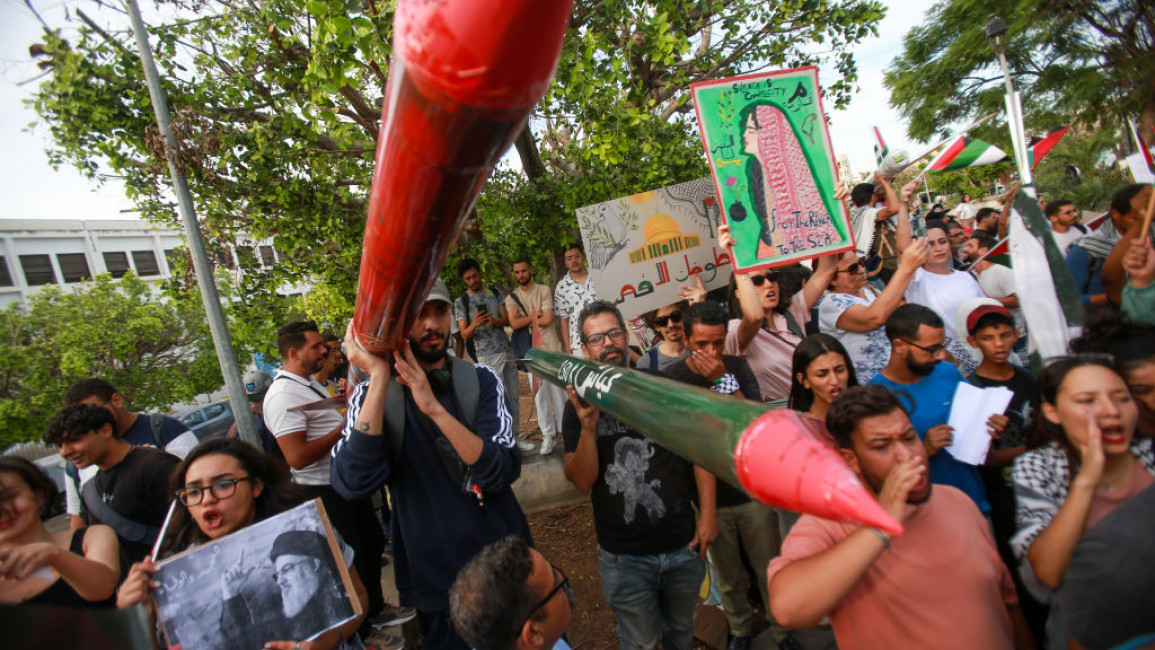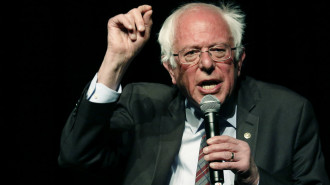Tunisia investigates activists amid crackdown on the pro-Palestine movement
In Tunisia, authorities are investigating three additional pro-Palestine activists amid an escalating crackdown on the movement following President Kais Saied's reelection in October.
On Monday evening, pro-Palestine activists Maher Al-Kouki, Asrar Ben Jouira, and journalist Khawla Boukrim were released after hours of questioning at the Ben Arous court, near the capital Tunis.
"While the activists have been released, the case remains open, and there is a possibility that four more activists may soon be summoned for questioning", said Wael Nawar, a member of the Tunisian Coordination for Joint Action for Palestine.
Since 8 October, at least eight pro-Palestine activists have been interrogated by Tunisian authorities in connection with the "Al-Aqsa Flood" protest on 7 October, which commemorated the first anniversary of the Israeli war on Gaza.
Three activists now face terrorism charges, accused of inciting violence and encouraging attacks on foreign embassies in Tunisia via social media.
The protest, which began at Bab El Hamra and proceeded along Avenue Paris and Bourguiba Avenue, aimed to reach the French embassy—a building widely perceived in Tunisia as symbolic of pro-Israel stances and colonial history.
Following the protest, the Interior Ministry reported that several police officers were seriously injured. Pro-Palestine groups, however, argue that their members were also harmed.
The Tunisian Coordination for Joint Action for Palestine argued that the demonstration was a statement against the government's failure to take a firm stance against "the embassies and interests of countries supporting the genocide."
During the protest, Tunisian police also threatened to ban future demonstrations on Bourguiba Avenue, a historic site for protests that played a pivotal role in toppling the Ben Ali regime.
"We reaffirm that all police efforts to tighten the siege on our coordination, its members, and its supporters will not intimidate us", the group said in a statement.
"Instead, these actions will only strengthen our resolve to stand in solidarity with Palestine and its resistance."
The intensified crackdown on the pro-Palestine movement coincided with the reelection of President Saied, who won by a landslide (90%) in a low-turnout election on 6 October where the strongest candidates were either dismissed or convicted.
A key demand of the pro-Palestine group is the implementation of an anti-normalisation law in Tunisia.
Last November, President Saied intervened to delay a parliamentary vote on a bill aimed at criminalising normalisation with Israel, citing the need to safeguard Tunisia's "external security and interests."
The bill, which included provisions criminalising trade, communication, and any form of cooperation with Israel, had garnered widespread support and was expected to pass before the president’s intervention.
In recent months, reports have suggested that a normalisation deal between Tel Aviv and Tunis could be in the works, as Israel seeks to expand its influence in North Africa.
However, President Saied has repeatedly dismissed any possibility of establishing diplomatic ties with Israel.




 Follow the Middle East's top stories in English at The New Arab on Google News
Follow the Middle East's top stories in English at The New Arab on Google News
![The US vetoed a UN Security Council (UNSC) resolution demanding a ceasefire in Gaza [Getty]](/sites/default/files/styles/image_330x185/public/2185152251.jpeg?h=7ef8ac04&itok=RpLSj2pu)

![An attack by paramilitary forces in Sudan has killed at least 40 people [Getty]](/sites/default/files/styles/image_330x185/public/2182364341.jpeg?h=a5f2f23a&itok=r8Fkhxdj)